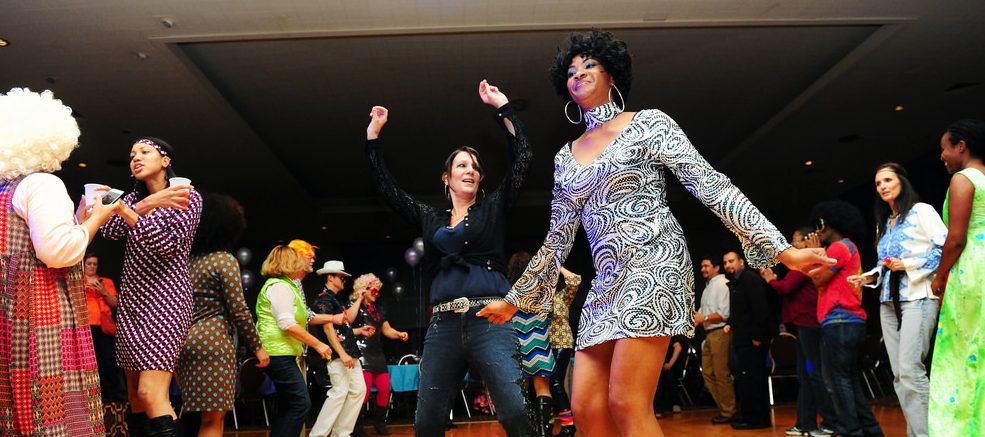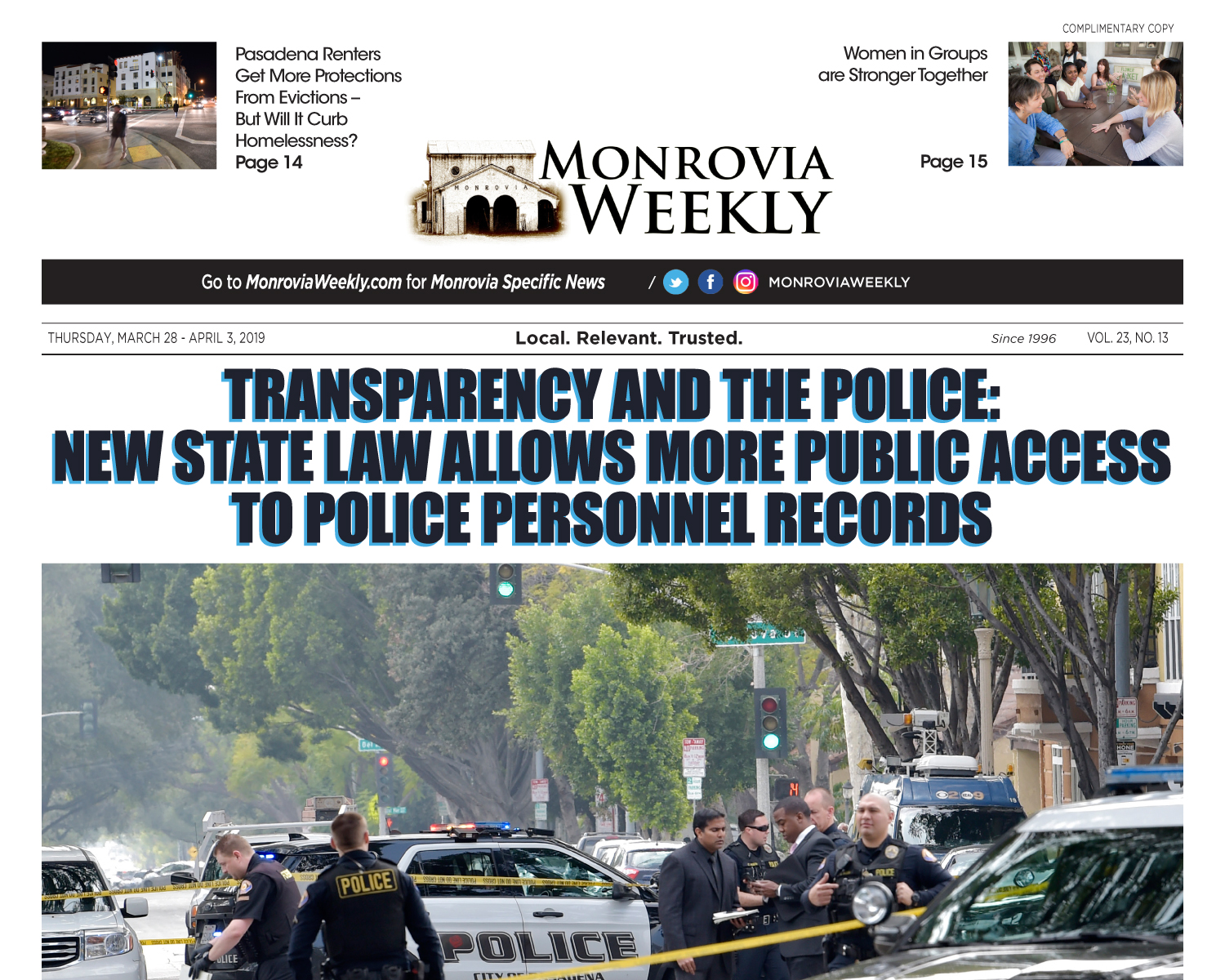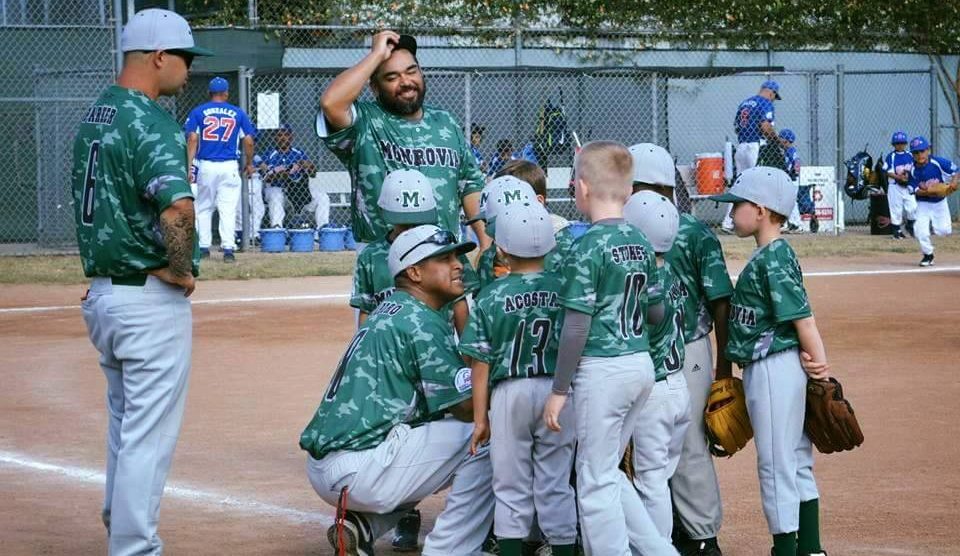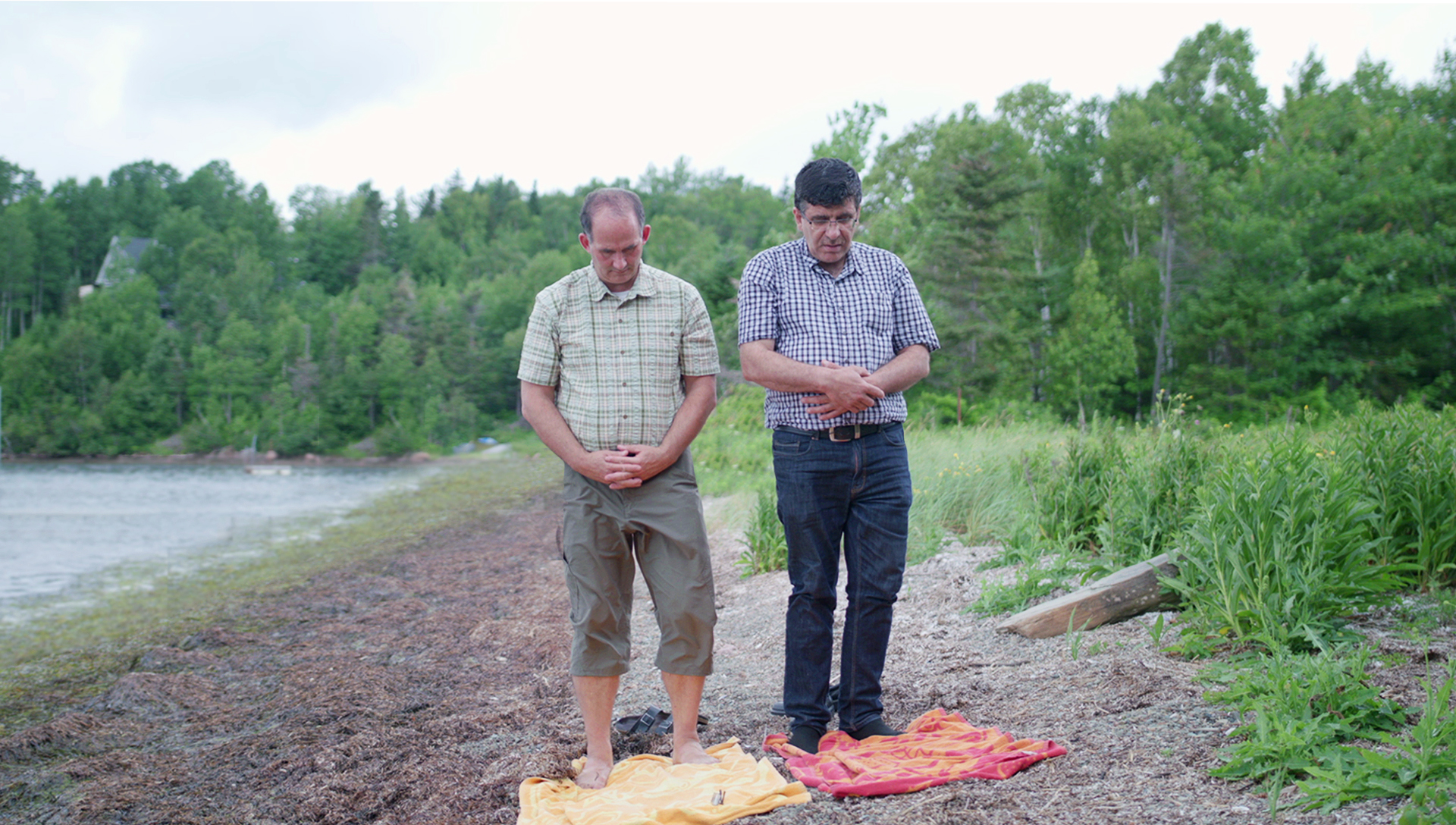
By May S. Ruiz
Jonathan Keijser is a young filmmaker in Pasadena who has been working on a based-on-a-true-story feature narrative about the Hadhad family, who moved from Damascus, to Lebanon, and eventually to Nova Scotia in Canada, and how the community came together and rebuilt the Hadhads’ business from scratch.
In the process, Keijser met Frank Gallant, one of the Nova Scotians who helped the Hadhads. That circle of friendship – between Gallant, Hadhad, and Keijser – led to the production of another, much shorter documentary about a camping trip. And that film, called ‘Brothers,’ became part of ‘The Atlantic Selects,’ an online showcase of short documentaries from independent creators, curated by The Atlantic. It has been online for three weeks and seen by several thousand viewers.
Taking a break from his feature film project, Keijser chats about how this short documentary came about.
“When I was researching about the main people involved in the story, I came across Frank who was the Canadian local who befriended Issam and helped him build his chocolate business out of nothing. Frank provided valuable assistance when I was writing the script. We would communicate by phone every couple of weeks or so, and we struck up a friendship.
“Last summer, after Frank and I had been talking on the phone for a year, I asked what he was doing for the summer and he said he wanted to do some Canadian things out in the wilderness with Issam. Issam’s never gone camping and Frank loves to go camping. And I thought that would be such a cool film and decided to do something about it. So I called Frank and told him I would like to follow him and Issam on their first camping trip together. While Frank wasn’t sure what anyone would find interesting in it, he good-naturedly agreed.”
Keijser adds, “In documentary filmmaking, it’s imperative to establish trust between you and your subject because if they don’t trust you, not only will the things they tell you sound inauthentic, but you won’t have the kind of access necessary. In this case, Frank could have said ‘I wouldn’t be comfortable with you filming that.’
“During production, there were only two of us, which allowed us to embed into scenes more easily. Typically when you’re trying to shoot observational footage, it’s always a challenge to stay inconspicuous. But after a few hours of us being together, Frank and Issam, for the most part, forgot we were even there. However, there was one instance where Issam broke the fourth wall and offered us some food he had just cooked at the campsite, knowing we hadn’t had dinner yet. Frank had to gently remind Issam that we, the crew, ‘were invisible.’ Issam quickly apologized but we silently smiled because it was just another example of how kind and considerate Issam’s nature is.”
“Being invisible is such an interesting skill – in fiction, it’s all about the camera, doing the takes, having the light, getting everything perfect; in documentary, it’s about you disappearing, you’re non-existent, you’re a fly on the wall,” Keijser elucidates.

Their little adventure, which took two days of filming and two months of editing, is called ‘Brothers’ for a reason. Keijser discloses, “The title is based on Frank’s and Issam’s brotherly friendship. In the campfire scene in the film, Frank mentions how happy he is to be camping with Issam, like brothers. Issam also stated during our interviews with him that he thinks of Frank as a brother.”
‘Brothers’ may be a short documentary but Keijser paid as much attention to details as he would making a feature film. He utilized the knowledge he gained from his Master of Fine Arts degree from University of Southern California’s School of Cinematic Arts and his Bachelor of Music degree (in classical doubles bass performance) from McGill University’s Schulich School of Music for it to approximate a movie experience.
“The music is a completely original score,” Keijser says. “As a musician myself, I was pleased to have been able to collaborate with composer David Bertok on the shaping of the style and tone of the music. It was important that the music reflected the celebration of cultures in the story. We did this by blending traditional Nova Scotian and Middle Eastern sounds in the instrumentation. The accordion is used throughout, which is rooted in the Scottish heritage of Nova Scotia as well as the darbuka, a goblet drum, often used in Middle Eastern music.”
Keijser sent his short documentary to The Atlantic, a prestigious publication, where it has gained worldwide viewership. He adds, “The film will be available to the public indefinitely. It shares a timeless message that is increasingly more relevant today. It has subsequently been picked up by other media outlets, including Mother Jones.”
But Keijser is hardly an amateur in the genre. He is an award-winning storyteller with a strong focus on creating socially conscious content. As a film and theatre director, and screenwriter, he is committed to sharing compelling stories of progressive communities and people, with the goal of helping encourage positive social change in the world.
Before his film career, Keijser founded a non-profit theatre company for emerging artists in Montreal, Canada. He directed fully-staged Broadway productions, including ‘Into The Woods’ and ‘Cabaret,’ both of which received critical acclaim. Pat Donnelly of the Montreal Gazette called him ‘a promising young director’ and described his shows as ‘packing an unusually powerful punch, with a cast that works like a team.’ His films and stage productions have played at over thirty festivals and venues around the world since.
In 2016, Keijser’s feature film, ‘What Would Beethoven Do?,’ had its world premiere at the Cleveland International Film Festival where it held three sold-out screenings and took home an audience award. The film questions why we create art by following three superstar musical renegades as they independently take action to repair the fractured and ailing world of classical music, reinstating its relevance in the 21st century.
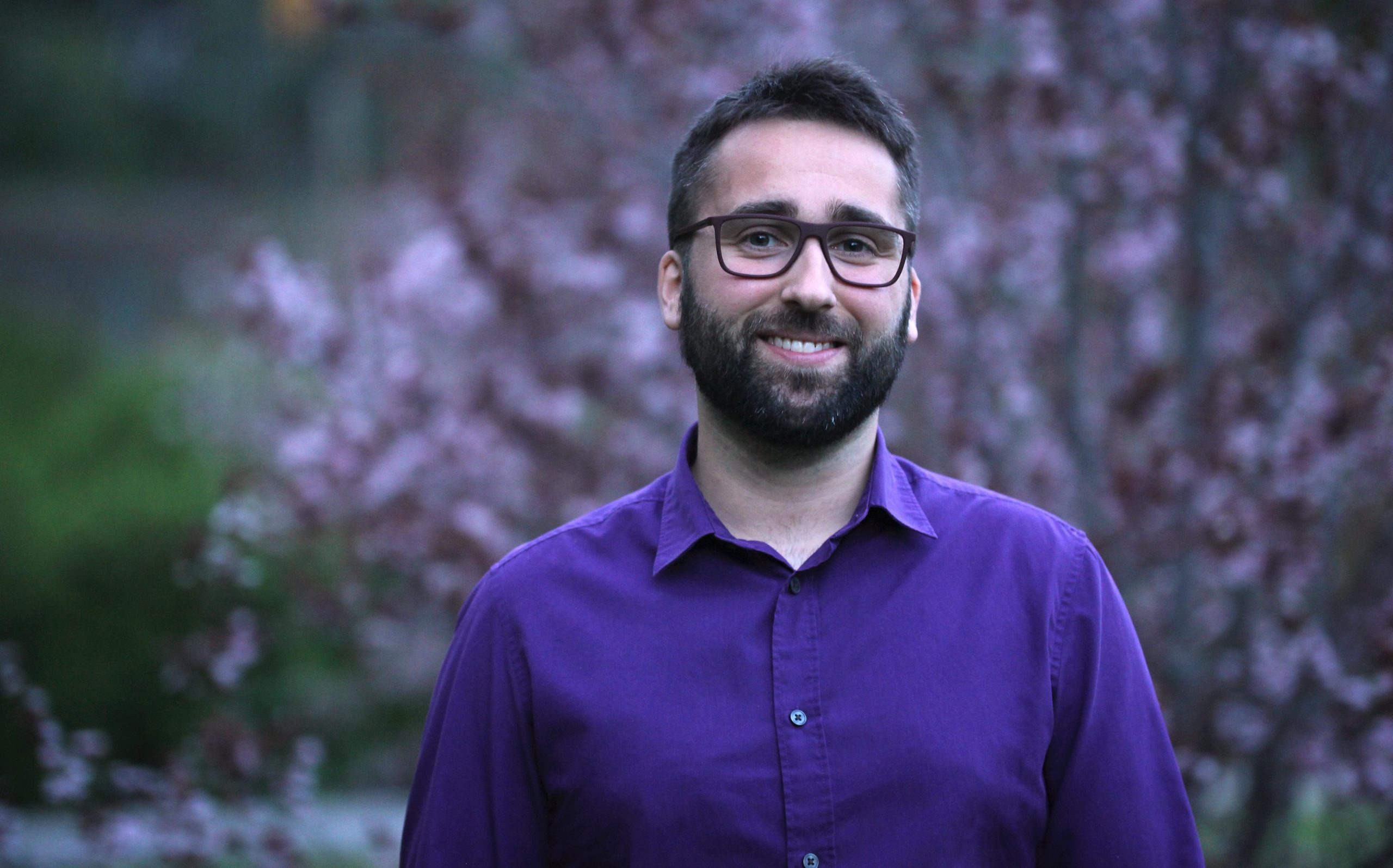
Keijser believes that in order to inspire and challenge audience perceptions, content must be both reflective and humorous. To make an impact, stories must go beyond a single message approach and allow viewers to draw their own informed conclusions. Instead of providing definitive answers to difficult questions, he encourages increased awareness to help broaden perspectives as a way to spark curiosity and effect positive change.
It was in that spirit that Keijser created a larger project about Peace by Chocolate, the Hadhads’ family business. He clarifies, “The feature film follows the Hadhad family from their immigration to Antigonish, Nova Scotia, to the process of their rebuilding their lives in their new Canadian homeland. Although the short documentary, ‘Brothers’ is a separate story and is not directly related to the storyline of the feature film, it shares a similar tone in its warmth and sweetness. It is particularly special to me as I grew up in the Canadian province of Nova Scotia. Not only does the warmth of the community reflect my experiences in Nova Scotia, but also the importance of spending lots of time in the wilderness and natural beauty of the province.”
“I’m very happy the documentary launched in The Atlantic, where people can just go online and watch it,” continues Keijser. “Its purpose is more a social cause than financial gain. In the short time it’s been up, I’ve gotten tons of comments – most of them have been very, very heartening. People are saying, ‘Finally, something positive’ or ‘Finally, something uplifting!’ But that’s the theme in all my work. I want to leave the audience with some hope for the future, to believe they can actually do something that makes a difference. And it doesn’t have to be on a grand scale – it could be a simple interaction with someone else.”
“My vision for the ‘Brothers’ documentary was very much what Frank said at the end,” explains Keijser. “Starting a conversation with somebody is the basis for a connection. And vice-versa, connection can lead to a conversation. That’s what the documentary is about – we’re more similar than we are different as human beings. It only takes you having a conversation or connection with someone to realize it and to shrink that gap.
“I hope Issam’s and Frank’s friendship encourages audiences to be more open when meeting someone seemingly different from themselves. Although we don’t all share the same background or speak the same language, we are all the same underneath. Stories like theirs are proof that good can come from love, inclusion, and acceptance. When we turn people away, it not only furthers the divide between us, it builds resentment as well. Films like this can give hope to the millions of displaced refugees around the world and inspire others to help. We never know when we ourselves may need a helping hand.”
Keijser’s ‘Brothers’ could not have come at a better time. Given today’s political and social climate, we are in dire need of constructive examples to emulate.


